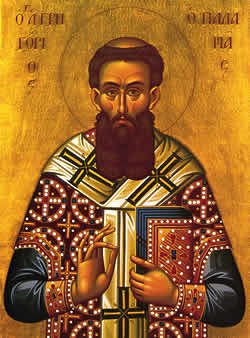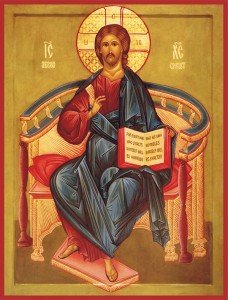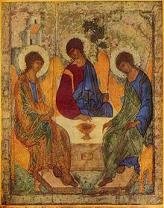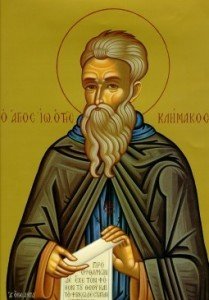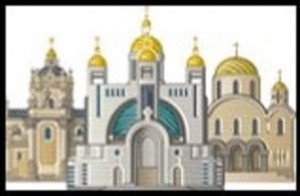![]() So, as I explained, the reason why we distribute Holy Communion during the week days of the Great Fast but do not celebrate the Divine Liturgy, is that on the journey of life, which is a journey of personal transformation, we need the help and support of God. Theosis requires a partnership with God. We have to do our part and He, in turn, provides the support, insight, courage and strength to accomplish personal change. In this process of change, our main help is precisely Christ, who makes Himself present to us in Holy Communion. He is the essential food that can keep us spiritually grow.
So, as I explained, the reason why we distribute Holy Communion during the week days of the Great Fast but do not celebrate the Divine Liturgy, is that on the journey of life, which is a journey of personal transformation, we need the help and support of God. Theosis requires a partnership with God. We have to do our part and He, in turn, provides the support, insight, courage and strength to accomplish personal change. In this process of change, our main help is precisely Christ, who makes Himself present to us in Holy Communion. He is the essential food that can keep us spiritually grow.
So our unique tradition calls us to fast from various foods as a means to strengthen our will power to live more and more like Jesus. God then supports us in this effort by being present to us in the Person of Jesus, Who has given us His very Body and Blood to be our spiritual food.
If the Eucharist is incompatible with fasting, one might ask, then why is its celebration still prescribed on Saturdays and Sundays of the Fast and this without “breaking” the fast? The canons of the Church seem here to contradict one another. While some of them forbid fasting on Sundays, some others forbid the breaking of the fast on any of the forty days. This seeming contradiction, however, is apparent only because the two rules which seem to be mutually exclusive refer in fact to two different meanings of the term fasting. To understand this is important because we discover the Eastern Church’s “philosophy of fasting” which is essential for our spiritual effort.
There are two ways of fasting rooted in both Scripture and Tradition and which correspond to two distinct needs of humans. The first one can be termed a total fast for it consists of total abstinence from food and drink. One can define the second one as ascetical fast for it consists mainly in abstinence from certain foods and in substantial reduction of one’s diet. The total fast, by its very nature, is of short duration and is usually limited to one day or even a part of one day. From the very beginning of Christianity, it has been understood as a state of preparation and expectation – a state of spiritual concentration on that which is about to come. This is why we typically have some sort of fast during regular time before we receive Communion. In more recent years that has been mitigated to be only three hours. In older days it was from midnight the day before the reception of Communion. Physical hunger corresponds here to a spiritual expectation of fulfillment, the opening up of our minds and hearts.

